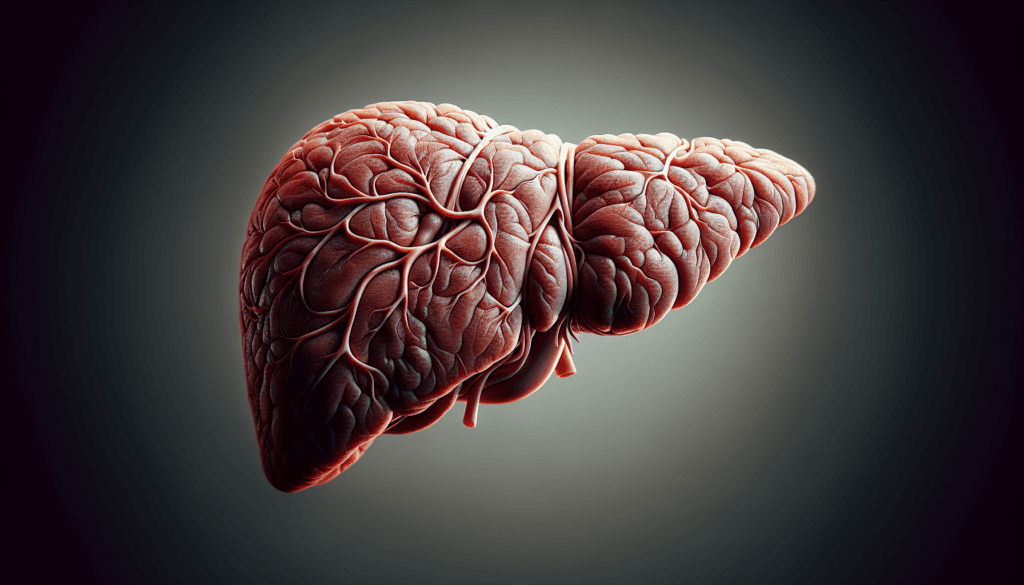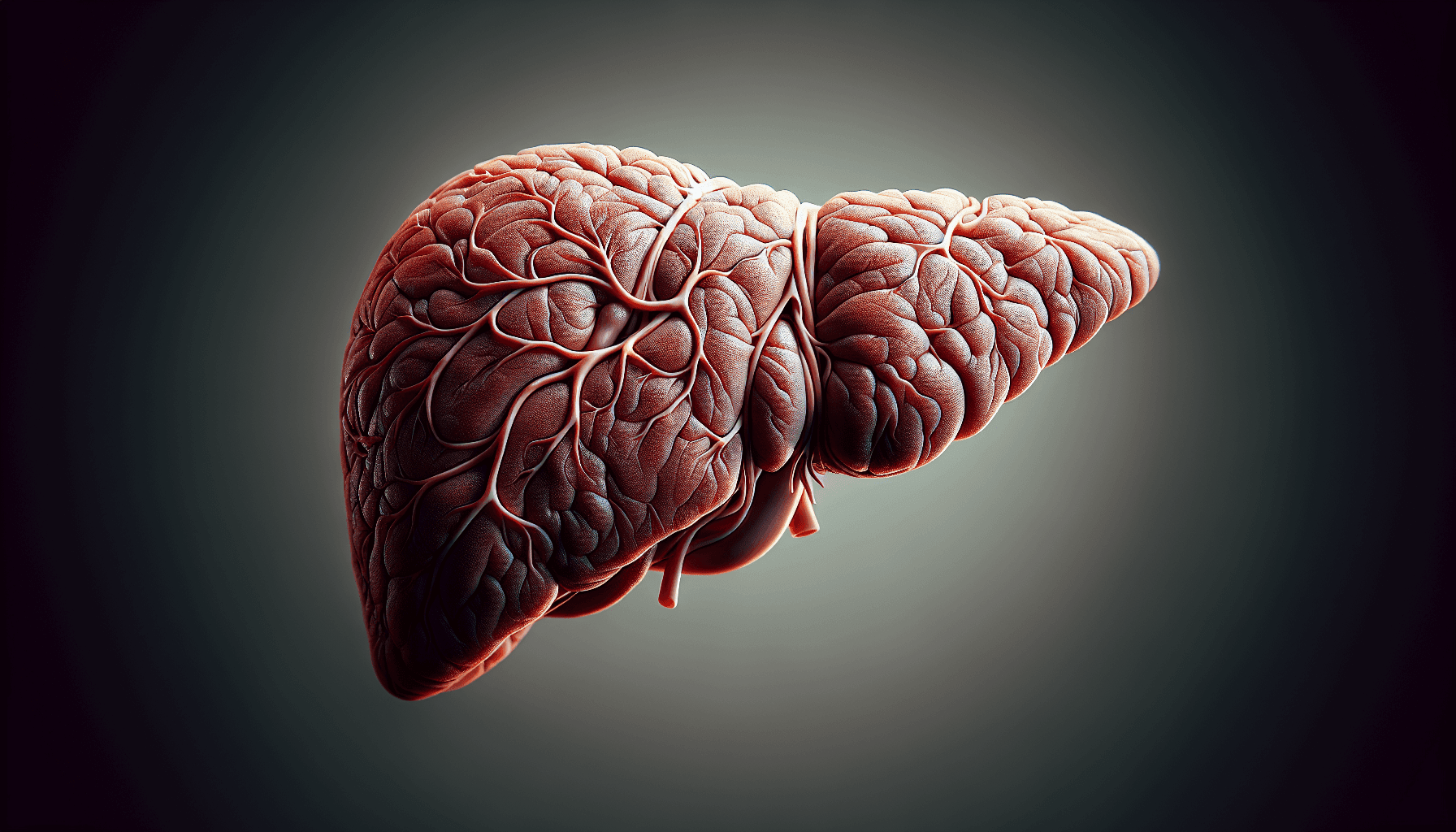
How often do you think about the health of your liver when you’re taking medications or over-the-counter drugs? It’s easy to overlook, given how commonplace and essential these products can be in addressing everyday health issues. However, the liver plays a critical role in processing these substances, making it vital to consider their impact on liver health.

Understanding the Liver’s Role in Drug Metabolism
The liver is a powerhouse organ that performs numerous essential functions, including the metabolism of medications and over-the-counter drugs. This processing is crucial because it transforms potentially harmful substances into something that can be safely disposed of by the body.
How the Liver Metabolizes Drugs
Upon ingesting medication, it enters the bloodstream and heads to the liver for processing. This organ uses enzymes to alter the chemical structure of drugs, rendering them harmless. Essentially, the liver acts as the body’s detox center, breaking down drugs and toxins and preparing them for elimination.
Common Enzymes Involved in Drug Metabolism
The liver relies on a group of enzymes known as the cytochrome P450 family. These enzymes are responsible for processing a wide variety of medications. Any interference with these enzymes—whether due to medications, lifestyle factors, or genetics—can influence how effectively the liver metabolizes drugs.
Types of Medications and Their Effects on Liver Health
Different medications can have varying effects on liver health. While some are processed smoothly, others can pose significant risks, especially if taken in higher doses or over prolonged periods.
Acetaminophen: A Case Study in Liver Impact
One of the most common over-the-counter medications, acetaminophen, is worth examining. When taken as directed, it’s generally safe, but in large quantities, it can cause acute liver failure. The liver converts acetaminophen into a toxic metabolite, and excess intake overwhelms the liver’s ability to detoxify this metabolite.
Prescription Medications and Liver Health
Prescription medications can also impact liver health, particularly those used over long periods or in high doses. Drugs such as statins, used for lowering cholesterol, and certain antibiotics can stress the liver due to their hepatotoxic potential.
Herbal Supplements and Natural Remedies
Often overlooked, supplements and herbal remedies can also affect liver health. Common examples include kava, used for anxiety and sleep disturbances, and black cohosh, used for menopausal symptoms. While they might seem harmless because they’re “natural,” they can interact with liver enzymes in potentially harmful ways.
Factors Affecting Liver Susceptibility to Medication Damage
Not everyone is equally susceptible to liver damage from medications. Several factors can influence this susceptibility, including age, genetics, lifestyle, and existing health conditions.
Genetic Predispositions
Some people have genetic variations that affect how their liver enzymes process medications. These variations can lead to slower drug metabolism, increasing the risk of liver damage with standard doses.
Lifestyle Choices and Their Impact
Lifestyle factors such as alcohol consumption and diet can also affect liver health. Alcohol, in particular, can compound the liver’s workload, especially when combined with medications that are detoxified by the liver.
Pre-existing Liver Conditions
Individuals with pre-existing liver conditions, such as fatty liver disease or hepatitis, are at higher risk of liver damage from medications. Their liver’s compromised state makes processing additional substances even more challenging.
Recognizing the Signs of Liver Stress or Damage
It’s crucial to recognize the early signs of liver stress or damage to prevent serious health consequences. Being vigilant can lead to timely medical intervention.
Symptoms to Watch For
Common symptoms of liver stress include fatigue, nausea, and jaundice (yellowing of the skin and eyes). Additionally, dark urine, abdominal pain, and unexplained weight loss can indicate liver issues.
Seeking Medical Advice
If you experience signs of liver stress, it’s essential to seek medical advice promptly. Early diagnosis can be key in preventing more severe liver damage.

Guidelines for Protecting Your Liver While Using Medications
Taking precautions can significantly protect your liver while you benefit from necessary medications.
Proper Dosing and Timing
Always adhere to prescribed dosages and timings. Avoid doubling doses if you miss one and consult with a healthcare provider if you have concerns about dosing.
Consulting Healthcare Professionals
Before starting any new medication, including over-the-counter products and supplements, discuss them with your doctor. They can help evaluate potential risks, especially in relation to your liver health.
Regular Liver Function Monitoring
For those on long-term medication regimens, regular liver function tests can help track liver health. This proactive monitoring can detect changes early, allowing for adjustments in medication if needed.
Summary Table: Key Points and Tips for Medication Use
Here’s a handy table summarizing the key points discussed:
| Key Point | Detail | Tip |
|---|---|---|
| Liver’s Role in Drug Metabolism | Metabolizes and detoxifies medications using enzymes | Understand what medications are processed by the liver |
| Acetaminophen and Liver Health | Can cause liver damage in high doses | Always adhere to recommended dosages |
| Genetic and Lifestyle Factors | Affect susceptibility to liver damage from medications | Know your family history and maintain a healthy lifestyle |
| Recognizing Liver Stress Symptoms | Fatigue, nausea, jaundice | Seek medical advice if symptoms arise |
| Protecting Liver Health | Proper dosing, consult healthcare, regular monitoring | Engage in proactive discussions with healthcare providers |

Conclusion
Though routine and widespread, the use of medications and over-the-counter drugs warrant a thoughtful approach to maintain liver health. By understanding the liver’s crucial role, recognizing risk factors, and adhering to guidelines for safe medication use, you can significantly support your liver’s vital functions. Remember, staying informed and consulting healthcare professionals will guide you in making the best choices for your health.